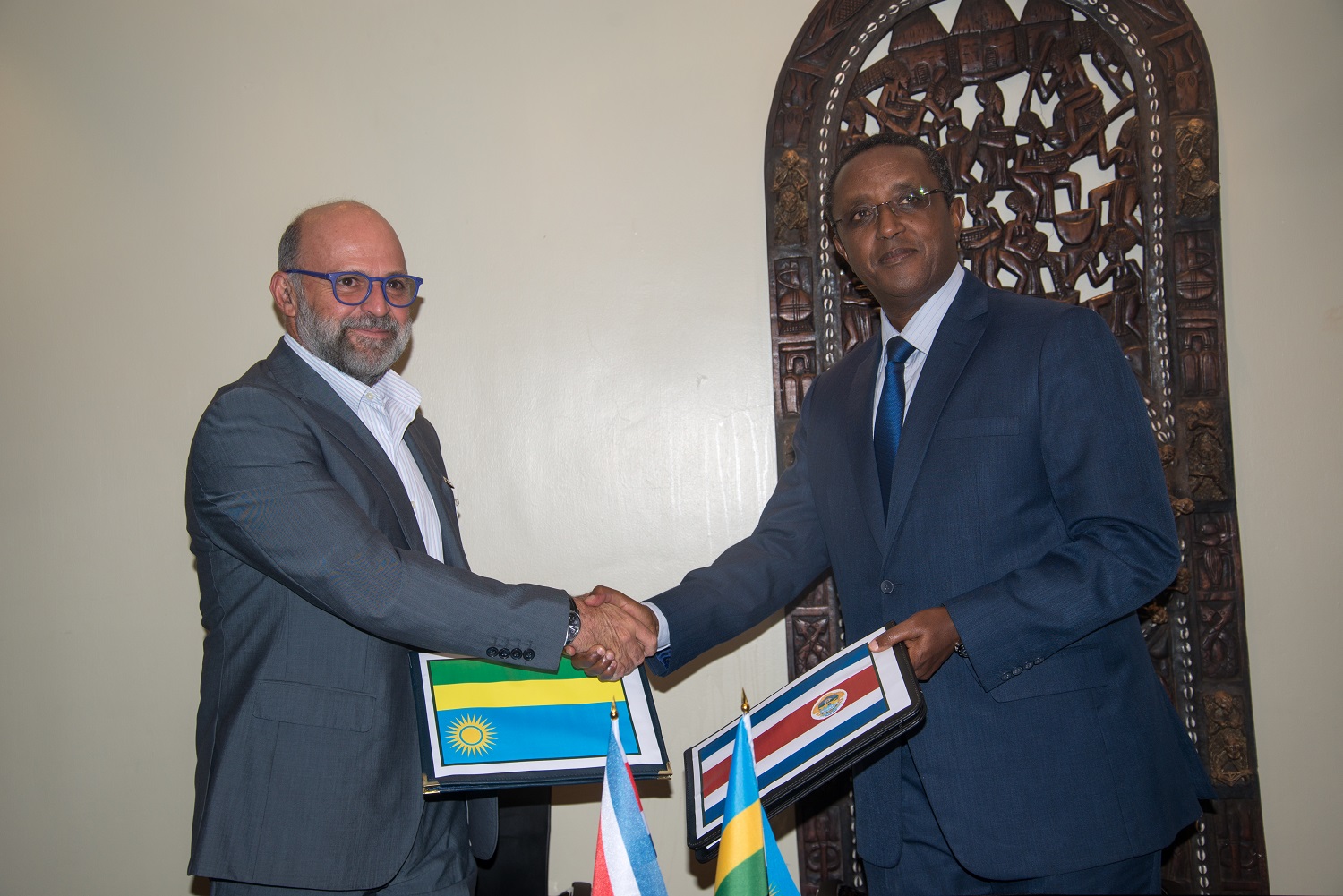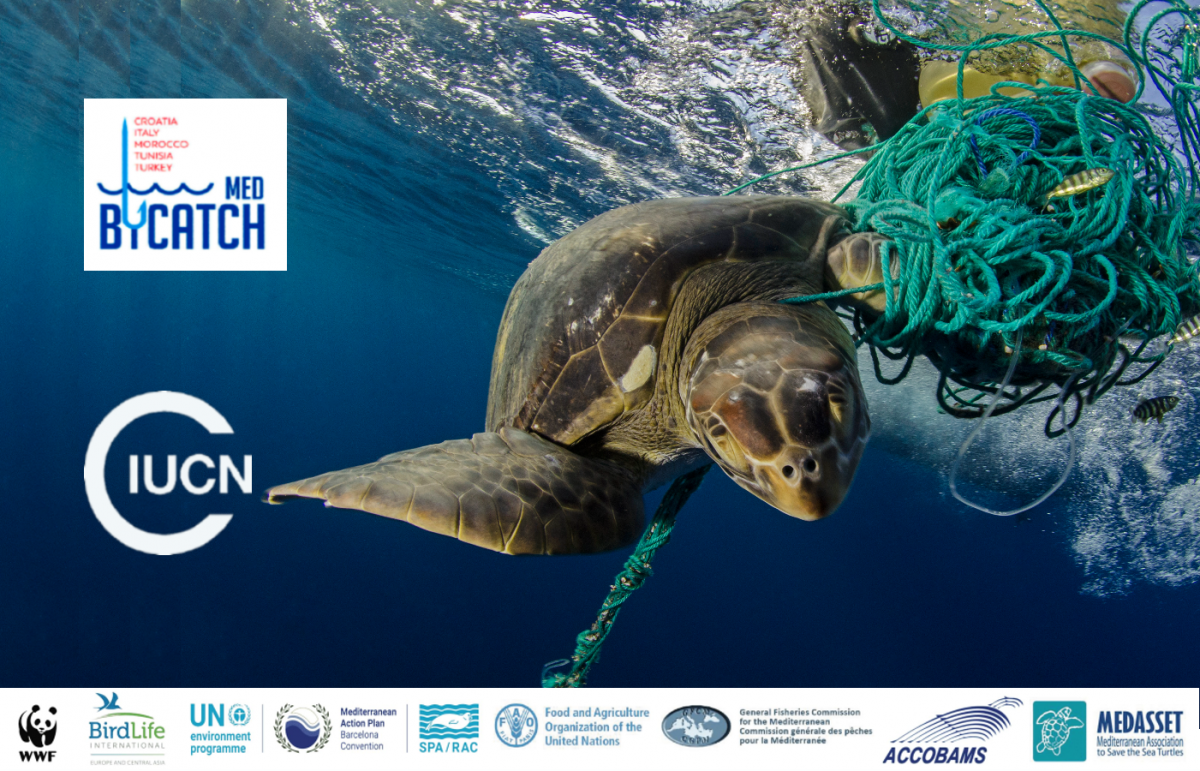Rwanda and Costa Rica Sign MoU to strengthen conservation efforts
Environment Ministers of Rwanda and Costa Rica have signed a Memorandum of Understanding to deepen collaboration on key environmental conservation programmes in the two countries. The MoU was signed on March 15, 2019 on the sidelines of the United Nations Environment Assembly (UNEA) in Nairobi

Rwanda's enironment Minister Vincent Biruta and his Costa Rican counterpart Carlos Manuel Rodriguez sign
Photo: IUCB ESARO
Environment Ministers of Rwanda and Costa Rica have signed a Memorandum of Understanding to deepen collaboration on key environmental conservation programmes in the two countries.
Facilitated by Conservation International (CI) and the International Union for Conservation of Nature (IUCN), Minister Vincent Biruta and his Costa Rican counterpart Carlos Manuel Rodriguez signed the MoU on March 15, 2019 on the sidelines of the United Nations Environment Assembly (UNEA) in Nairobi.
Specifically, the MoU seeks to enhance partnership on innovative financial mechanisms for environmental conservation including Payment for Environmental Services (PES) for water, Natural Capital Valuation and Natural Capital Accounting (NCA).
Costa Rica is considered a success story in forest restoration and protection using PES, a mechanism in which beneficiaries of services delivered by forests such as fresh water pay for watershed conservation. The country has a forest fund that collects US$33 million annually for forest conservation.
The MoU also seeks to enhance capacity building and sharing of lessons for management of protected areas, tourism and ecotourism, forest and biodiversity conservation as well as enhance South-South cooperation to promote best practices in relation to Sustainable Development Goals.
“The MoU provides a good framework for enhancing the cooperation between Rwanda and Costa Rica. We’ve been working together for the last 3 years. We look forward to implementing it and possibly expanding the scope in the future,” said Minister Biruta.
He added: “Rwanda is piloting PES system in two water catchments and the MoU will support those activities including reforestation and landscape restoration. We’re really excited about PES since it can provide sustainable funding to conserve watersheds; it also enables more ownership by the people since they can get direct or indirect benefits.”
On his part, Minister Rodriguez said: “I am excited to formalize the relationship between the two countries; I have no doubt that the MoU will be mutually beneficial. It’s a good example of South-South collaborations that we all need.”
He added: “Costa Rica sees Rwanda as a leader in innovative environmental management which we can learn from including Public-Partnership in management of protected areas. Through the MoU, we’ll also collaborate to restore and protect watersheds that supply water to the capital city of Kigali; Costa Rica has achieved successes in this area through PES.”
In line with the MoU, the two countries will establish a Joint Forum on sustainable finance mechanisms to develop an action plan, identify priority projects for cooperation as well as review and assess activities undertaken as per the action plan.
The interest to sign an MoU follows exchange visits by Rwanda and Costa Rica government and NGO officials in 2017 to share experiences about PES; the visits were facilitated by CI, IUCN and the Gaborone Declaration for Sustainability in Africa (GDSA).
“We’ve been accompanying this process through facilitating the exchange and supporting work on Payment for Ecosystem Services in Rwanda. We are pleased to be able to continue this facilitation and are excited about having reached this milestone,” said Christina Ender, Conservation International Senior Technical Manager for Payment for Ecosystem Services in Africa.
IUCN’s Regional Director for Eastern and Southern Africa Luther Anukur said: “We are excited with the MoU signing enabling the 2 countries to work more closely together and learn from each other with regard to PES and NCA. It will contribute to developing more effective national capital accounting systems for the benefit of people and nature conservation and IUCN will continue to provide necessary support.”



